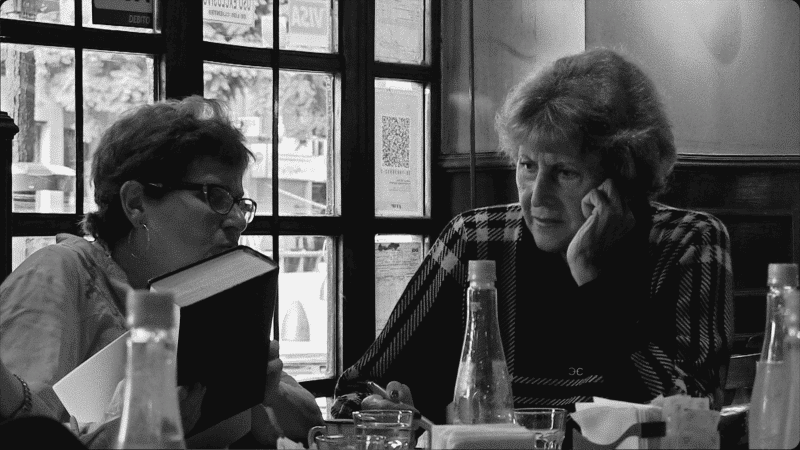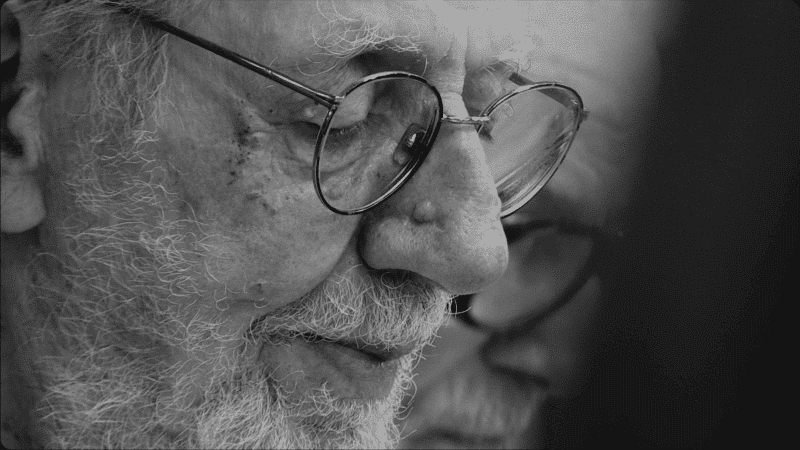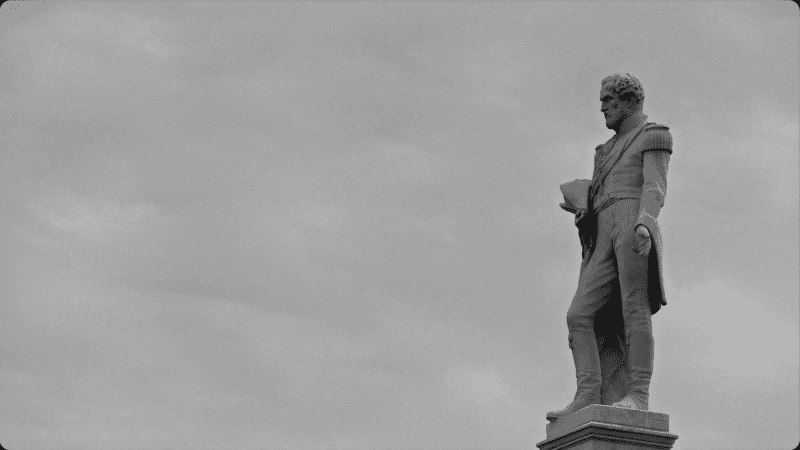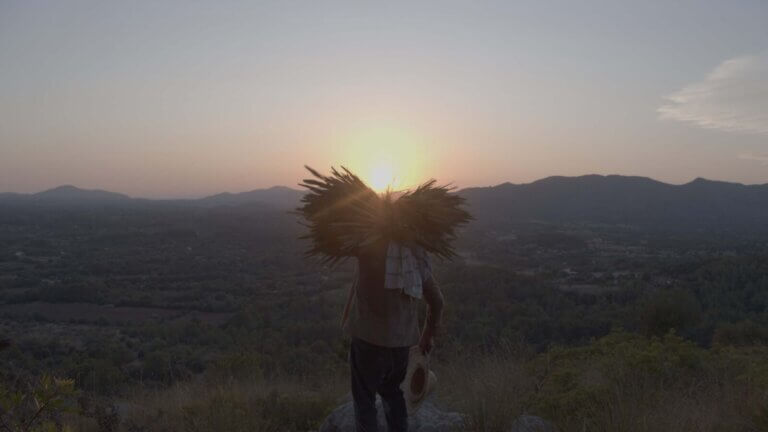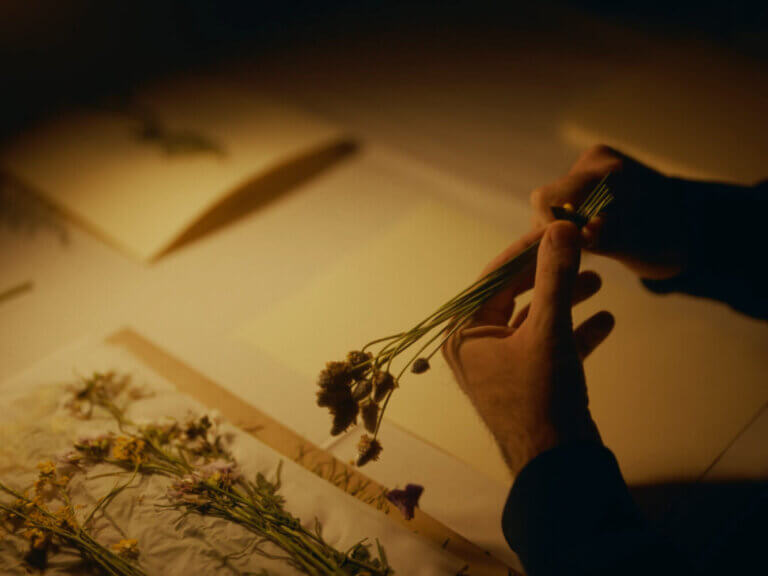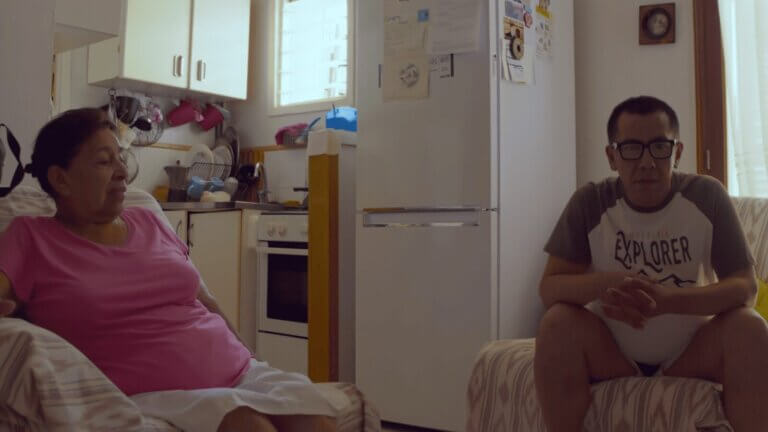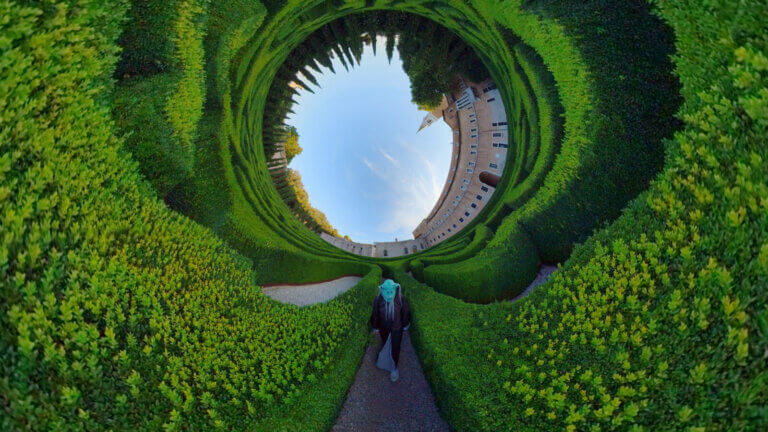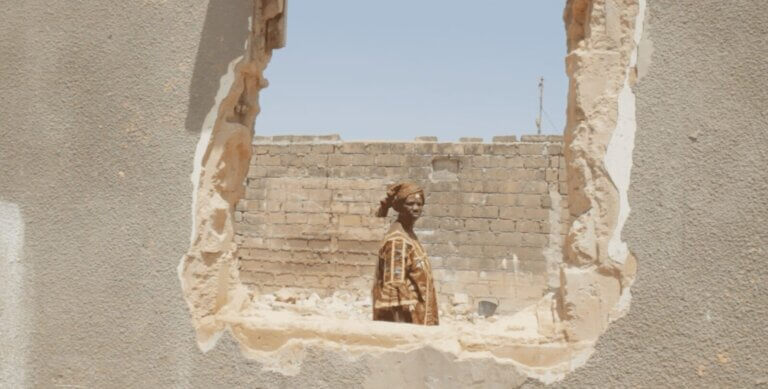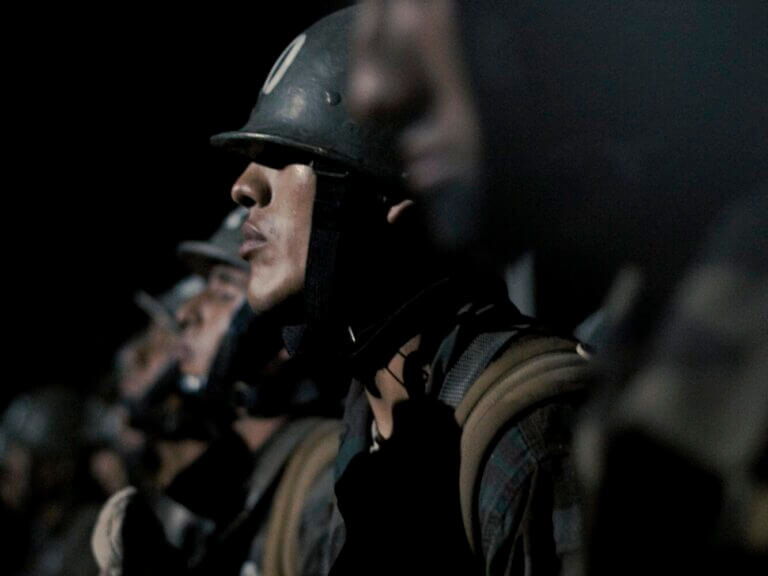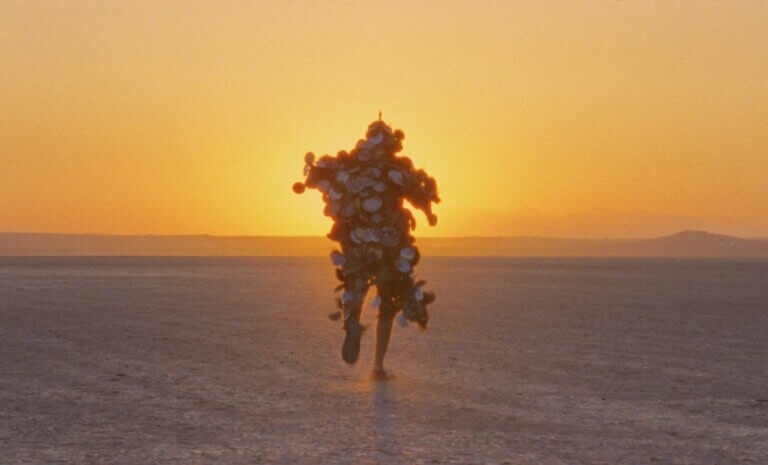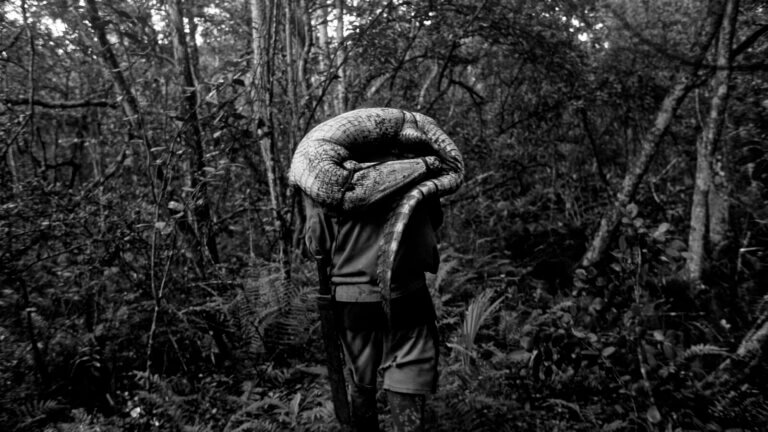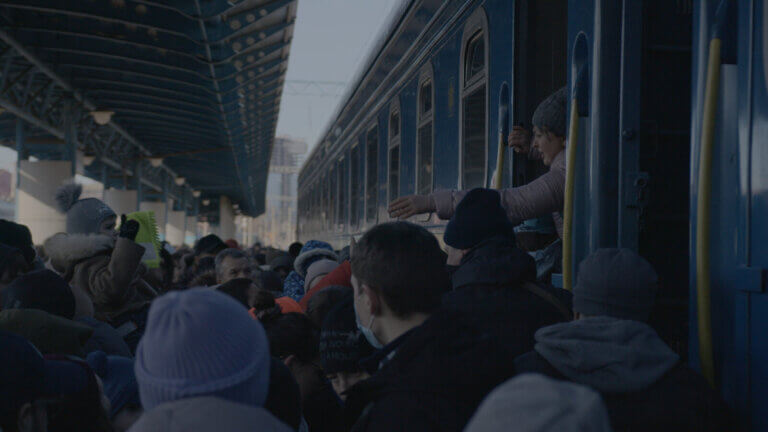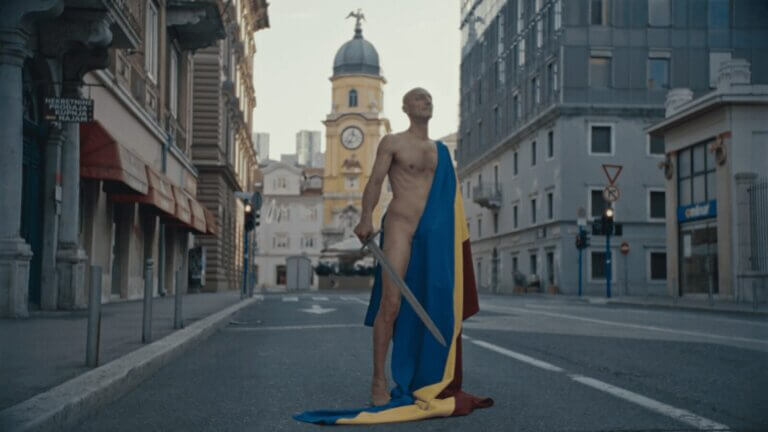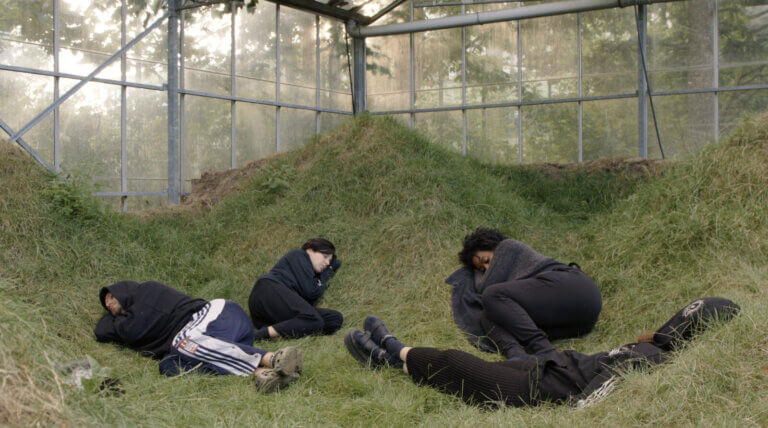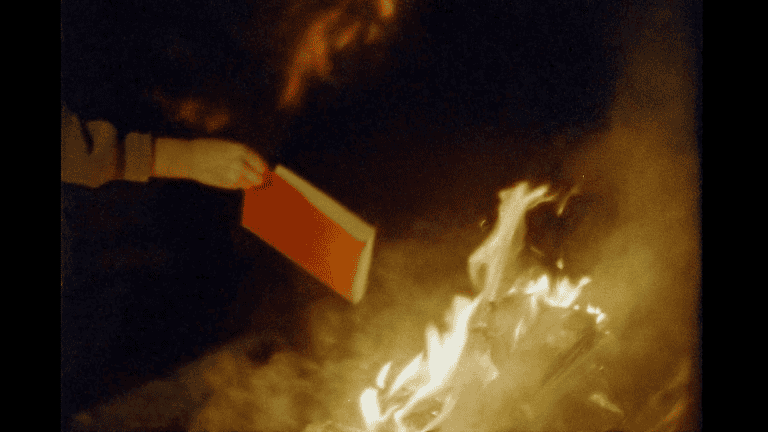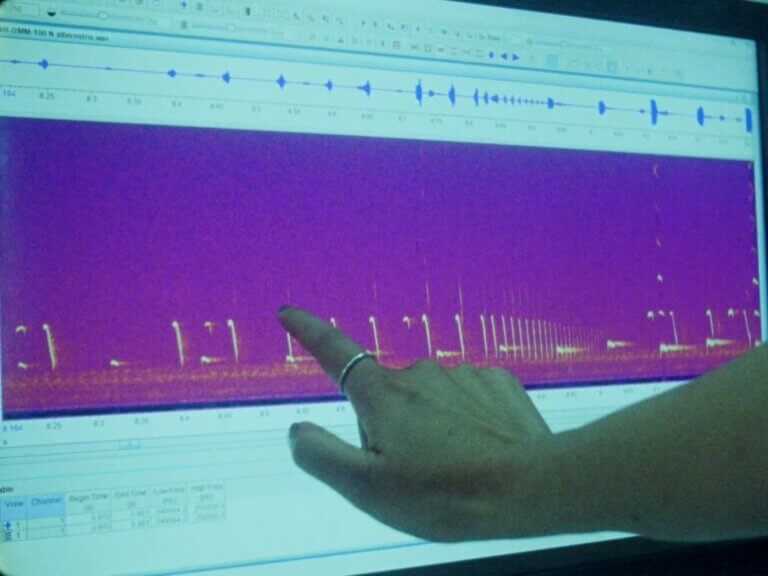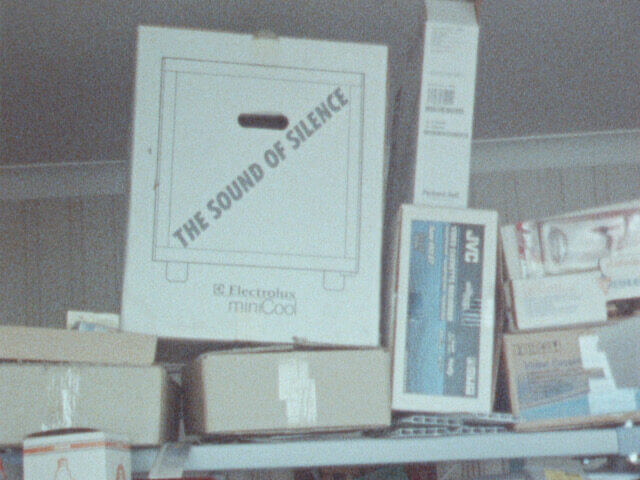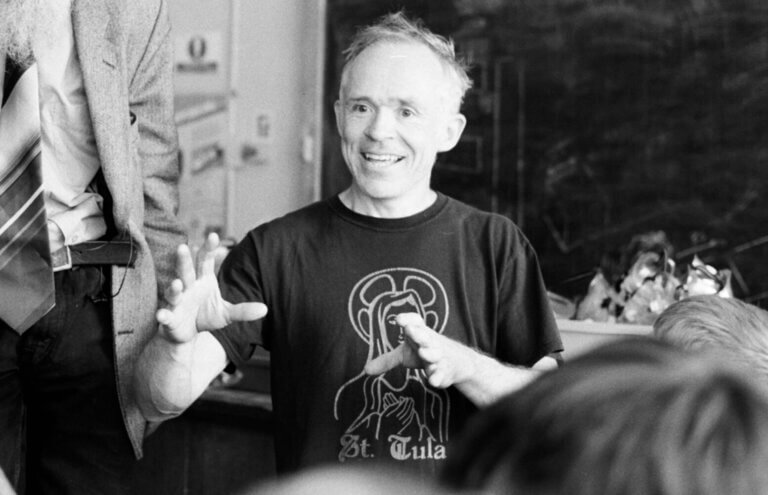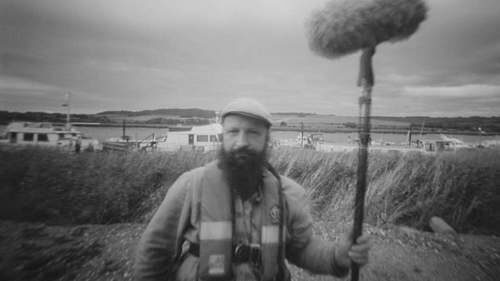
Le temps perdu
CineCiutat
07.10 - 19.30 | 08.10 - 17.00
A group of people have been gathering for the last eighteen years at a bar in Buenos Aires to read the same book over and over: In Search of Lost Time by Marcel Proust. Going through their memories and emotions, with a great sense of humor, the group gives the novel a new and unexpected meaning.
REVIEW
Reading is an activity that requires greater introspection; a silent act of intimate connection between a person and a text that stimulates a flow of imaginary visions. Therefore, how can we capture the mental state of someone who reads? How to represent with images an abstract process that contains so many other figurations?
For four years, the Argentine filmmaker María Álvarez closely accompanied a group of seniors who had been meeting at Café Tribunales for almost two decades to read together the seven volumes of In Search of Lost Time by Marcel Proust. Most of the time she went alone, sometimes with one or two companions, but never with a large crew. She didn’t have a big budget, nor did she have fancy equipment, nor a clear story beforehand. In fact, the director merely had a genuine curiosity and a will that could not be stopped and that is expressed in the attention that she pays to the details, the faces, the gestures and the words spoken in her film.
In my opinion, there are two distinctive qualities in non-fiction cinema: patience and perseverance, and I think this film honors them both in a curious, warm and beautiful way through a total commitment to space, subjects and the work that establishes it. It is stimulating to perceive how Álvarez’s method works almost as an act of resistance in the face of the challenges of productivity, efficiency and speed that unfortunately end up contaminating our field.
Exploring a minimalist, close and ingenious procedure – in fact, it feels like a handmade piece – Álvarez manages to give a palpable and chronological dimension to the monumental literary series, but especially to a generation of people from Buenos Aires. Le temps perdu projects the collective strength of a group of readers who find a kind of refuge in Proust’s text, interweaving their own memories and experiences with the events narrated in the novel in a complex and moving way. They do it with so much passion, wit and humor that I dare to say that, in a sense, this documentary could only happen in Buenos Aires.
María Campaña Ramia
MajorDocs Programming Team
Play Video
BIO
María Álvarez
Director
María Álvarez is an Argentine writer and director. She is currently directing “Near and dear”, the last part of his documentary trilogy about time and art. This trilogy began with “Las cinéphilas” (2017), screened at 40 festivals in 20 countries, and continued with “El Tiempo perdido” (2020), a film that had its world premiere in the Official Selection of Feature Films at IDFA and obtained the Best Feature Film Award in the Argentine Competition of the Mar del Plata Festival. She wrote the play “Burn before reading”, awarded in Spain with the second prize “Fray Luis de León” from Valladolid, and published in 2016.
Play Video
Year: 2020
Country: Argentina
Length: 102 min
Language: Spanish
Subtitles: English
Director: María Álvarez
Producers: María Álvarez, Tirso Diaz-Jares Rueda
Cinematography: Tirso Diaz-Jares Rueda
Camera: Tirso Diaz-Jares Rueda, María Álvarez
Sound design: Sofía Straface (ASA)
Editing: María Álvarez
Associated production: Mariano Avellaneda
Music: Rosario Castillo

